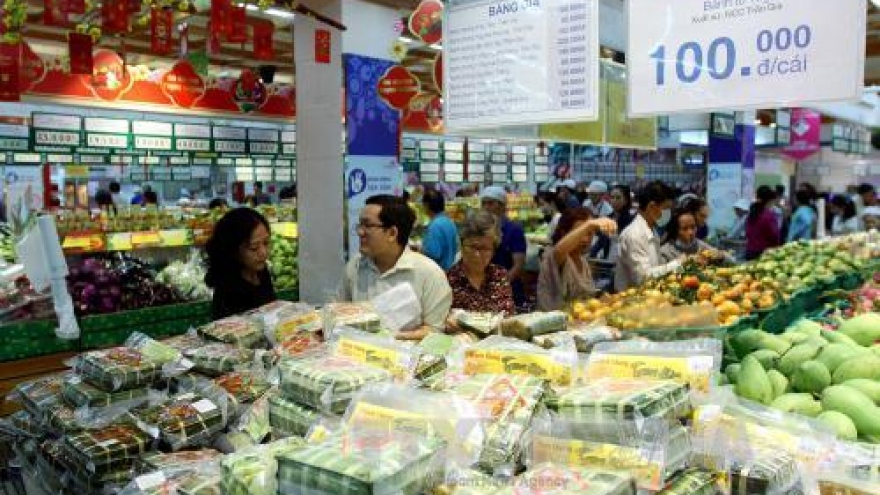Capitalising on Vietnam’s retail market
Vietnam’s retail sector posted an average growth rate of 7.3% per year during the 2010-2015 period with sales last year up 10% to reach US$112 billion, of which modern retail channels accounted for about one fourth of distribution.
 |
It is projected that the retail sector will grow at an annual rate of 11.9% until 2020 when sales are expected to hit US$180 billion, of which more than 45% belongs to modern retail channels.
To achieve such targets, the Ministry of Industry and Trade (MOIT) has approved the plan to develop a network of supermarkets and commercial centres until 2020 with a vision towards 2030, in addition to stable economic growth.
Under the MOIT’s plan, Vietnam will have between 1,200 and 1,500 supermarkets, 180 commercial centres and 157 shopping centres in 2020 to meet consumers’ growing demand.
Despite many successes, Vietnam’s retail market is facing numerous challenges both at present and in the future.
A series of free trade agreements that Vietnam has signed, and will come into effect soon, are expected to mount greater pressure on domestic enterprises.
Quality and competitively priced goods from member countries of the Trans-Pacific Partnership and the European Union will flood the Vietnamese market thanks to tax cuts and tariff eliminations.
Furthermore, as foreign retailers are expanding their distribution channels aggressively, Vietnamese counterparts face the risk of being sidelined and taken over right on the home turf if they have no viable strategies.
Vietnam is no longer among the world’s 30 most attractive retail markets (number one in 2008 and 28th place in 2014) but remains a market with great potential to both foreign and domestic companies.
As such, identifying the trends in Vietnam’s retail market correctly so that Vietnamese retailers are not overwhelmed at home is an urgent task for both regulators and business circles.
Vietnamese retailers need to formulate sensible and effective tactics to compete with rivals who possess strong financial resources, good business and marketing strategies, and professional management.
Vietnam used to have a number of plans to develop supermarkets and commercial centres but implementation was not as expected and this needs to be addressed to develop a healthy and transparent market where parties can compete fairly, serve consumers and promote production and trade effectively.
Domestic enterprises should build strength by working together to increase brand recognition and provide products in chains to maximise profits, while at the same time taking advantage of existing channels to increase their market share.
On the other hand, the government should facilitate domestic retailers’ access to capital, land and other infrastructure so that they can proactively participate in the market without being crushed by foreign competitors.



